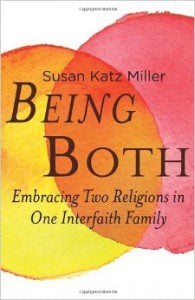 |
|
Asra makes a stand
|
Muslim women are treated like second-class citizens in Islam. This is true even in the United States.
This sad fact manifests itself clearly and overtly in many American mosques and other Islamic institutions. Women are often segregated into crowded, dirty sections where it is often impossible to see or hear the prayers or sermons that are conducted in the men’s sections. Some mosques have outright bans on women. The false notion that Islam requires such segregation is so pervasive that in some mosques in America the strongest and most vocal proponents of the prison-like segregated quarters are Muslim women themselves.
Furthermore, very few American mosques and other Islamic institutions allow women to serve in leadership roles. Women’s contributions are routinely limited to the kitchen and to childcare. Obviously this is done to take advantage of their God-given domestic engineering and maternal skills. It does not hurt that it also helps to insure the status quo.
In the 21st century, at a time when a younger, more open-minded generation of American Muslims is rapidly emerging, one would think that this backward, counterproductive and un-Islamic behavior would be eliminated. More knowledgeable and self-assured Muslims should be stepping into leadership roles to begin affecting change within American mosques.
This is easier said then done. American mosques are treated like fiefdoms by their “leaders”, and these “leaders” zealously guard against any infringement of their lordship. Petty though it may be, these men feed off of the power and status of their leadership positions.
Breaking down the barriers erected by the current leadership over the past 30 to 40 years will be an enormous undertaking. Although many mosque-attending Muslims see the problem, very few of are willing or able to do anything about it.
Apparently this was the case for a long time in Morgantown, West Virginia where the local mosque was segregated, and women were often completely left out of religious activities. This all began to change when a Muslim woman named Asra Q. Nomani decided to challenge these inequities.
Ms. Nomani is a journalist and author, and she recently published a book entitled “Standing Alone in Mecca: An American Woman’s Struggle for the Soul of Islam.” The book is part memoir and part manifesto. It is very controversial, but it is also very inspiring.
I first learned of Ms. Nomani and her book while watching CNN. Ms. Nomani gave a brief interview about her book and her struggle for women’s rights in Islam. What moved me to read the book was her comment at the end of the interview: “We’re going to change the world.” I wondered to myself, “Who is this woman and what is she all about?”
I bought the book and read it. Ms. Nomani’s story made an impact on me. It evoked various emotions ranging from annoyance to indignation and from disgust to hope.
Frankly, Ms. Nomani did not make a great first impression in the early pages. This was due in part because I began reading the book with certain assumptions about Ms. Nomani which turned out to be false. These assumptions were based on the subtitle of her book: “An American Woman’s Struggle for the Soul of Islam.” I assumed that, as a precursor to such a monumental struggle, Ms. Nomani would have at least a basic knowledge of Islam and Islamic history. I was wrong.
In her first 34 years of life Ms. Nomani somehow missed out on several fairly simple tenets of and facts pertaining to Islam. By her own admission, up until age 35 Ms. Nomani “had no clue where Saudi Arabia was located,” she had no idea what the word “mahram” meant, and she was oblivious to the ideology of “Wahhabism.” To add insult to injury, she did not come to realize that “Islam is not a monolithic religion” and that it has “two sects, the majority Sunni and the minority Shi’a” until after turning 35 as well. It apparently took Ms. Nomani another year to discover the concept of “ijtihad”.
I was also startled by Ms. Nomani’s candid revelations about her sex life early in the book. While these revelations did not deterred me from reading the book, they did become very annoying when she brought them up again and again, at times peppering her comments with her own armchair religio-philosophical analysis. Annoyance turned to indignation when Ms. Nomani began rationalizing her premarital sex as some how being acceptable within Islam.
By the end of her book Ms. Nomani had figured out where Saudi Arabia is on a map, she knew all about mahram, wahhabism and ijtihad too. Unfortunately, the one lesson that eluded her was the unambiguous Islamic prohibition against adultery and fornication.
It is distasteful to dwell on Ms. Nomani’s personal life. However, given that she brought the issue front and center, a discussion of her book cannot avoid touching on these issues. I raise this topic largely to point out that, while I disagree with her attempt to ignore established and unambiguous Islamic doctrine, I do not believe it should overshadow the very important work she is undertaking in reclaiming women’s rights in Islam.
Tactically, it is better that Ms. Nomani brought up the issue that she is an unwed mother preemptively. Had she kept the matter private, I have little doubt that her detractors would have publicized these facts in an attempt to smear her reputation and discredit her work. By raising the issue herself, Ms. Nomani has blunted the shock value of her personal peccadillos.
In any case, by page 210 of the book my indignation turned to disgust. I was disgusted by the behavior of the mosque leaders in Morgantown, West Virginia. No matter what Ms. Nomani may have done in her private life, she did not deserve to be treated in such a rude, cruel and insulting manner by the Morgantown mosque leaders and by men throughout the country.
A note Ms. Nomani received from a male Muslim university professor in Morgantown, West Virginia made an enormous impact on me:
Hi Asra,
I am organizing Iftar dinner every Saturday for families (husbands and wives) with their minor children (under 18 years). We will be honored to have your father Dr. Nomani and his wife. We will be honored to have your brother Mustafa, and his wife and their children.
To avoid any confusion, I want to make it clear that you are not invited to these dinners.
Thank you.
This message is an example of the mean-spirited nature of some of the Muslim men of the Morgantown mosque. The mosque leaders also exposed their vindictiveness by trying to have Ms. Nomani’s mosque membership revoked. Individual members of her mosque revealed their inclination towards violence when they tried to use threats of force to get what they wanted. Other individuals, also presumably Muslim men, displayed their hostility towards Ms. Nomani and other Muslim women by sending death threats through the internet.
Despite all of the bullying and intimidation, Ms. Nomani remained committed to securing her rights in the mosque. Her effort and perseverance paid off. She notes that, as a result of her efforts, many of the narrow-minded, cruel, selfish and unenlightened “leaders” were either voted out or resigned from the mosque board and were replaced by more reasonable, moderate Muslims.
All things considered, Ms. Nomani’s struggle is inspiring. I admire her willingness to confront her oppressors. I have heard the arguments put forth by the Morgantown mosque’s leaders in my own community. The particularly disingenuous ones relate to avoiding fitnah and resolving Muslim problems among Muslims. These are coded messages. The call to avoid fitnah actually means “keep your mouth shut.” The call to resolve problems internally is really a call to retain the status quo. Many reform-minded Muslims stumble early on by falling for these tactics, and by the time they see these tactics for what they really are, most individuals are too tired and fed up to pursue their efforts.
Mosques and other Islamic institutions are vital to the strength and growth of Islam in America. However, so long as these institutions remain in the control of ignorant individuals they will fail to live up to their promise. Even worse, by remaining in the control of such lemming-like people who parrot idiotic messages from abroad through their sermons, newsletters and libraries, they create the false impression that American Muslims are under foreign control.
Something has to be done about these problems. Ms. Nomani’s methods may not be the least intrusive means of dealing with these problems, but they certainly are very promising.Fightghs
Junaid M. Afeef is a Research Associate at the Institute for Social Policy & Understanding. His articles are available at www.ispu.us He can be reached at junaid.afeef@gmail.com.












